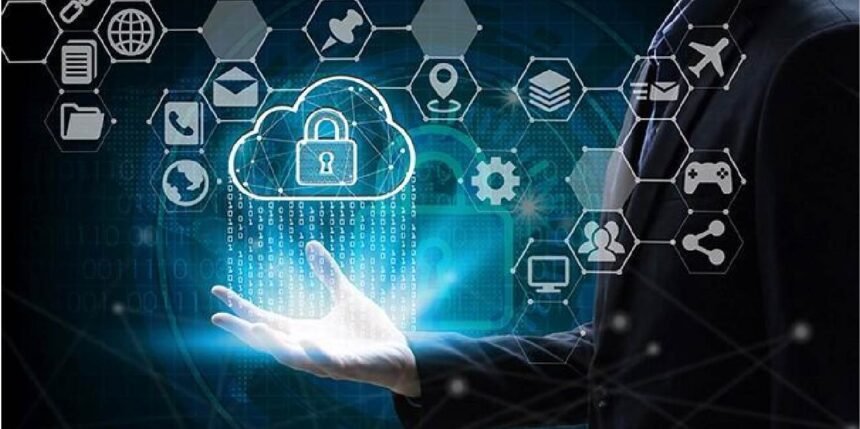The workplace has changed. Employees log in from home offices, coffee shops, and airports, using a mix of personal and company devices. At the same time, more businesses rely on cloud platforms to store data and run critical operations. This shift brings new opportunities—but also new dangers.
Cybercriminals target these vulnerabilities with phishing emails, ransomware, and cloud breaches. A single weak password or unsecured Wi-Fi connection can open the door to massive losses. This is why cybersecurity services have become essential for every modern business. They don’t just protect systems—they protect the future of work itself.
Common Cybersecurity Problems Businesses Face
Rising Threat of Ransomware and Phishing Attacks
Ransomware attacks have surged, locking companies out of their own data until they pay up. At the same time, phishing emails trick employees into clicking links or sharing credentials. With remote work, these attacks often bypass traditional firewalls and go straight to individual inboxes.
Weak Passwords and Human Error as Entry Points
Even the strongest system can fail because of human mistakes. Employees reusing weak passwords or sharing credentials make it easy for hackers to slip in. Without training and safeguards, the “human factor” remains one of the biggest cybersecurity risks.
Data Breaches Leading to Financial and Legal Trouble
A data breach doesn’t just expose sensitive information. It can also lead to lawsuits, fines, and permanent damage to customer trust. Industries like healthcare, finance, and e-commerce face especially high stakes when private data leaks.
How Cybersecurity Services Provide Solutions
Network Monitoring and Threat Detection in Real Time
Cybersecurity teams use advanced tools to watch networks 24/7. Intrusion detection systems (IDS) and security information and event management (SIEM) platforms flag suspicious activity the moment it happens. This real-time response stops small incidents before they become full-scale breaches.
Employee Training to Reduce Human Error
Cybersecurity services often include awareness programs that teach staff how to recognize phishing emails, avoid unsafe downloads, and follow password best practices. Trained employees become the first line of defense against attacks.
Multi-Factor Authentication and Access Controls
Strong passwords alone aren’t enough. Multi-factor authentication (MFA) adds another layer of security by requiring codes sent to phones, fingerprints, or authentication apps. Combined with role-based access controls, MFA ensures only the right people can reach sensitive data.
Long-Term Protection Through Cybersecurity Planning
Compliance With Industry Regulations and Standards
Many industries face strict requirements like HIPAA, PCI DSS, or GDPR. Cybersecurity services help businesses stay compliant by monitoring policies, encrypting data, and documenting security measures. This reduces the risk of fines and builds trust with clients.
Regular Risk Assessments and Vulnerability Testing
Hackers constantly find new ways in. That’s why businesses need ongoing penetration testing and risk assessments. By simulating attacks, cybersecurity experts find weak spots before criminals do.
Disaster Recovery and Business Continuity Planning
Even with strong defenses, no system is 100% safe. That’s why cybersecurity services include backup and recovery plans. If a breach or outage happens, businesses can restore data and resume operations without devastating downtime.
Why Professional Cybersecurity Services Matter
Expertise Beyond What In-House IT Teams Can Handle
Many businesses rely on small IT teams that juggle daily support with security tasks. But advanced threats like zero-day exploits require deep expertise. Cybersecurity professionals specialize in anticipating and stopping these attacks.
Cost Savings Compared to Breach Recovery
Investing in prevention costs far less than dealing with an attack. A single data breach can cost millions in recovery, fines, and lost revenue. Cybersecurity services reduce this financial risk by catching problems early.
Peace of Mind Knowing Systems Are Protected
Perhaps the most valuable benefit is confidence. With professional monitoring, training, and planning, business leaders can focus on growth instead of worrying about the next cyberattack.
The Future of the Digital Workplace and Cybersecurity
Remote Work Will Remain a Target
As hybrid work becomes the norm, unsecured Wi-Fi networks and personal devices will stay on hackers’ radar. Businesses will need even stronger mobile and endpoint protection.
Cloud Security Will Grow in Importance
With more data moving to services like AWS, Microsoft Azure, and Google Cloud, protecting cloud infrastructure is no longer optional. Cybersecurity services will focus heavily on encryption, identity management, and cloud-specific defenses.
AI and Automation in Cyber Defense
Artificial intelligence is already helping detect unusual patterns in network traffic. As attacks get more complex, AI-powered cybersecurity tools will become a cornerstone of protection.
Conclusion
The modern workplace is digital, mobile, and cloud-powered. But these advantages come with risks that hackers are eager to exploit. From phishing scams to cloud breaches, the threats are constant—and growing.
The right cybersecurity services turn those risks into manageable challenges. With real-time monitoring, employee training, multi-factor authentication, and long-term planning, businesses can safeguard data, reduce costs, and protect their reputations.
Remote work and cloud adoption aren’t going away. The question is whether companies will take cybersecurity seriously enough to keep pace. With smart services and proactive defenses, the answer can be a confident yes.


